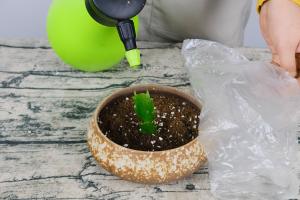Introduction
Water-soluble vitamins are essential compounds that our body needs to function properly. Unlike fat-soluble vitamins that are stored in the body's fatty tissues, water-soluble vitamins cannot be stored for long periods and must be regularly consumed through our diet. In this article, we will discuss where water-soluble vitamins can be found in plants.
Vitamin C
Vitamin C, also known as ascorbic acid, is a water-soluble vitamin that plays a crucial role in maintaining a healthy immune system. It is also an essential nutrient for collagen synthesis, wound healing, and iron absorption. Vitamin C is found abundantly in many fruits and vegetables, such as oranges, lemons, kiwis, strawberries, bell peppers, broccoli, and spinach. Eating a variety of colorful fruits and vegetables is the best way to ensure an adequate intake of vitamin C.
Vitamin B1 (Thiamine)
Vitamin B1, or thiamine, is a water-soluble vitamin that helps the body convert carbohydrates into energy. It is also essential for the proper functioning of the nervous system. Thiamine can be found in whole grain cereals, legumes, nuts, pork, and yeast. Brown rice, wheat germ, and bran are also good sources of thiamine.
Vitamin B2 (Riboflavin)
Vitamin B2, or riboflavin, is another water-soluble vitamin that plays a vital role in the body's energy production. It also acts as an antioxidant, protecting the body from damage due to free radicals. Riboflavin can be found in dairy products, eggs, meat, green leafy vegetables, whole grain cereals, and mushrooms.
Vitamin B3 (Niacin)
Vitamin B3, or niacin, is a water-soluble vitamin that helps the body convert food into energy. It also plays a crucial role in maintaining healthy skin, nerves, and digestive system. Niacin can be found in poultry, fish, meat, whole grain cereals, peanuts, and legumes.
Vitamin B5 (Pantothenic Acid)
Vitamin B5, or pantothenic acid, is a water-soluble vitamin that is needed for the synthesis of fatty acids, cholesterol, and amino acids. It is also essential for maintaining a healthy digestive system. Pantothenic acid can be found in mushrooms, avocados, broccoli, whole grain cereals, eggs, and meat.
Vitamin B6 (Pyridoxine)
Vitamin B6, or pyridoxine, is a water-soluble vitamin that is essential for the proper functioning of the nervous and immune systems. It also helps the body produce red blood cells, hormones, and neurotransmitters. Pyridoxine can be found in fruits, vegetables, whole grain cereals, nuts, and meat.
Vitamin B7 (Biotin)
Vitamin B7, or biotin, is a water-soluble vitamin that is important for the metabolism of carbohydrates, fats, and proteins. It is also essential for maintaining healthy hair, skin, and nails. Biotin can be found in eggs, liver, nuts, salmon, and sweet potatoes.
Vitamin B9 (Folate)
Vitamin B9, or folate, is a water-soluble vitamin that is important for the development of red blood cells and DNA synthesis. It is also essential for the proper functioning of the nervous system. Folate can be found in leafy green vegetables, legumes, citrus fruits, and whole grain cereals.
Vitamin B12 (Cobalamin)
Vitamin B12, or cobalamin, is a water-soluble vitamin that is essential for the proper functioning of the nervous system and the production of red blood cells. It is also important for the metabolism of carbohydrates, fats, and proteins. Cobalamin can be found in meat, fish, poultry, dairy, and fortified cereals.
Conclusion
Water-soluble vitamins are essential for maintaining a healthy body and preventing various diseases. Plant-based foods are an excellent source of water-soluble vitamins, and consuming a variety of fruits, vegetables, whole grain cereals, and legumes is the best way to ensure an adequate intake. So, next time you plan your meals, make sure to include plenty of colorful fruits and vegetables to get all the essential vitamins your body needs.

 how many times do yo...
how many times do yo... how many planted tre...
how many planted tre... how many pine trees ...
how many pine trees ... how many pecan trees...
how many pecan trees... how many plants comp...
how many plants comp... how many plants can ...
how many plants can ... how many plants and ...
how many plants and ... how many pepper plan...
how many pepper plan...































